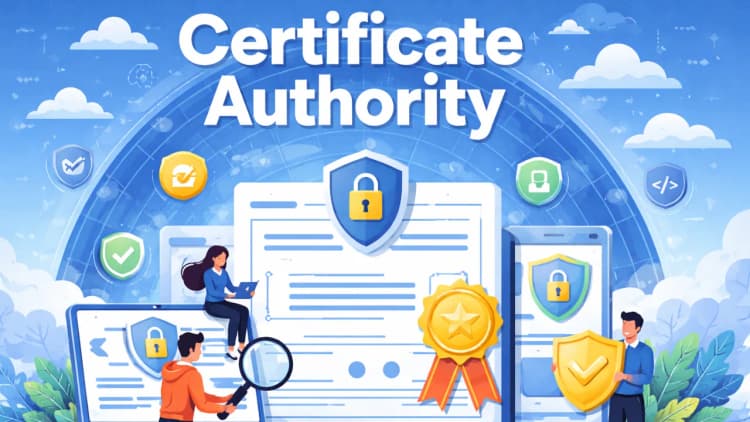Making your first game is one of the most exciting experiences as a developer. You’ve probably got a brain overflowing with ideas—a massive open-world RPG, a competitive shooter, or maybe something that blends genres in a revolutionary way. But here’s the hard truth: if you’re just starting out, start small. Really small. Like “Flappy Bird” small.
Why? Because Finishing One Game Changes Everything.
Most beginners fall into the same traps:
- They aim too high.
- They focus on polish instead of play.
- They keep adding features endlessly.
- And ultimately… they never finish.
Making games is hard. Not because of any single piece—coding, art, design, or music—but because of how many moving parts need to work together. That’s why your first goal shouldn’t be perfection. It should be completion.
If you finish even a tiny game, something changes inside you:
- ✅ You learn how the whole development cycle works—from idea to playable build.
- ✅ You feel the rush of actually completing a creative project.
- ✅ You get feedback from real players and see what works and what doesn’t.
- ✅ You gain confidence to do it again—better, faster, and smarter.
Think of it like lifting weights. You don’t start with 200kg. You start with the bar, and you build up over time. One completed game teaches you more than five half-finished ones.
🔑 Practical Tips for New Game Developers
1. Start Small
Your first project shouldn’t be your grand vision. Instead, pick a super simple concept. Think of a pong clone, a single-screen platformer, or a basic endless runner. Limit yourself to one mechanic, one level, and one clear goal.
Give yourself a time box. For example, “I will make a playable game in 10 days.” Constraints breed creativity and keep you focused.
2. Prototype Fast
Don’t get bogged down in menus, settings, or even graphics. Focus on the “core loop”—the thing the player does over and over. If you’re making a platformer, get movement and jumping right first. If it’s a shooter, make sure shooting feels snappy.
Use cubes or stick figures if you have to. You can replace them later. Gameplay always comes first.
3. Use Free or Pre-made Assets
You’re learning game development—not trying to win an art contest. Download free assets so you can spend time on logic and mechanics. Sites like Kenney.nl, itch.io asset packs, OpenGameArt, or Unity/Godot stores are gold mines.
Even AAA studios prototype with temporary assets. You should too.
4. Join Game Jams
Game jams are like development bootcamps. You get a theme, a deadline, and a creative community. The time limit forces you to cut unnecessary features and just finish something playable. Plus, you’ll get feedback from other devs.
Global Game Jam, Ludum Dare, Brackeys Jam, and many others are great places to start.
5. Keep the Controls Simple and Responsive
Your controls are the player’s hands in the game world. If they’re clunky or laggy, the whole experience suffers. Always aim for instant feedback—press jump, you jump. Click shoot, it shoots.
Good controls can make a simple game fun. Bad controls can ruin a masterpiece.
6. Get Feedback Early
Don’t wait until the last minute to get feedback. Test with real people as soon as your game is remotely playable. Sit beside them. Don’t help them. Don’t explain. Just watch where they get confused, lost, or bored. Then fix that.
Fresh eyes always reveal what you’ve become blind to.
7. Choose a Game Engine and Stick With It
New devs often jump from engine to engine. They try Unity one week, then Godot, then Unreal, then back. Every time you switch, you reset your progress.
Pick one and stick with it until you finish at least two or three games. That’s how you build deep skills and become efficient.
Unity is popular and well-documented. Godot is lightweight and open-source. Unreal is powerful but has a steeper learning curve. All three are valid—just commit.
8. Document Your Progress
Keep a devlog or journal. Write down what you did each day and what problems you solved. This helps you reflect and makes it easier to spot patterns and improve.
Also, sharing progress on Twitter, Reddit, or Discord can keep you motivated and connect you with other devs.
🚫 Common Beginner Mistakes
1. Trying to Build an MMORPG
Everyone has that one dream game. Usually it’s a massive multiplayer universe with trading, combat, housing, and politics. That’s cool—save it for later.
MMORPGs require large-scale networking, real-time databases, anti-cheat systems, and huge content pipelines. You don’t need that pain right now.
2. No Scope Control
“I’ll just add one more weapon… and a crafting system… and multiplayer… and…”
This is how projects spiral out of control. Define your core gameplay. Set a feature list. Stick to it. You can always expand in a later version.
3. Premature Optimization
New devs often obsess over performance too early. Don’t. Make the game first. Test it. If it’s slow, optimize only the parts that matter. Clean code matters less than working code in the early stage.
4. Polishing UI Instead of Gameplay
Cool menus and smooth transitions feel nice, but they’re worthless without solid gameplay underneath. Focus on making your game fun before making it pretty.
5. No Playtesting
If the only person who plays your game is you, you’ll miss huge flaws. You already know how it works. Others don’t.
Bring in friends, even non-gamers. Watch what confuses or frustrates them. That’s gold.
6. Spending Too Much Time Browsing Assets
It’s easy to lose hours looking for the perfect tree model or gun sound. Don’t. Use what you have. Replace it later. Keep building.
7. Not Backing Up Projects
Always use version control or at least cloud backups. A crash shouldn’t erase your work. GitHub, GitLab, or even Google Drive can save you hours of pain.
🧠 Final Thoughts
Your first game doesn’t need to be the next Hollow Knight or Stardew Valley. It just needs to exist. Finished. Playable.
That sense of completion will teach you more than a hundred tutorials. You’ll build confidence, experience, and momentum.
So start small. Keep it focused. Finish it. Then build again—smarter, faster, better.
Now go make something weird, stupid, fun, or all of the above.
Then finish it.
And after that? Make another.
Album of the day:




